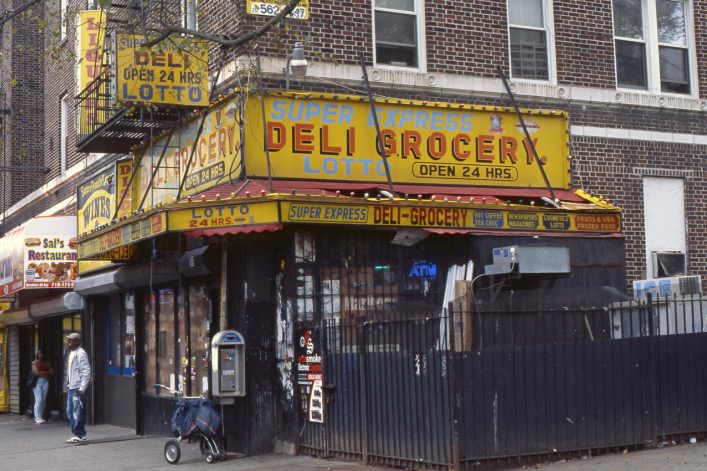It's hard out there for a real estate broker—or some

Earlier this week, the Billfold ran a personal essay that took readers inside one former real estate agent’s experiences working in Crown Heights at a time, the author says, when the Brooklyn neighborhood was beginning to gentrify, one marked with moments witnessing gorgeous homes chopped up to create additional rooms and bring in more rent, seeing landlords commit acts of housing discrimination and, on a personal level, experiencing the highs and lows of trying to close enough deals each month to pay her bills.
Her first gig began in 2009, and she was very green—so green, in fact, that she worked unlicensed. At the time, she writes, “you could rent a real two-bedroom (and you know what I mean by real — with a separate living room, and a full kitchen) in Brooklyn’s Crown Heights for $1500–$1600/month.” Today, the median rent for the same kind of apartment in the area is $2600, and she recounts the practices that led to that dramatic leap: rezoning that morphed residences into businesses, pre-war apartments split into ever-tinier rooms to fit more tenants, and buildings updated so they could be touted as luxury rentals.
After a year, she got her license and moved to a larger firm, where she soon discovered the unpredictable, manic nature of life as a real estate agent. “When I would close a deal,” she writes, “I felt euphoric, invincible and capable of great success. Then two, sometimes three weeks would pass before another would close, or a deal would fall through, sometimes triggering a depressive episode.”
Fans of the movie Glengarry Glen Ross are familiar with the competition, the stress, and the dramatic ups and downs of the business, but the writer was dismayed by how easily deals could fall apart and cost her a commission she’d been counting on. Even more dismaying, she writes, was being privy to discriminatory housing practices: “I had multiple experiences with a Pakistani landlord who refused to rent apartments to people of color or families,” she writes.
Peggy Aguayo, a real estate broker with Halstead Property who has been in the business for 35 years and was born and raised in the neighborhood, says the intensity of agent work that the woman experienced is par for the course: “It’s not for slackers... You have to be self-motivated and have an instinct for it.” She also warns new agents to refuse the listings of brokers, landlords, or sellers who discriminate. “That’s morally and ethically repulsive, and it’s illegal,” she points out. “You can lose your license—it’s very strict in New York."
And though it might seem like brokers these days are making money hand over fist, given the market's competitiveness and rising prices, anyone interested in getting into the industry must still be mindful of its mercurial, unpredictable nature: “Never let your highs get too high, or your lows get too low.”
As for the essay writer, she chose the other path to sanity: She quit, in part because she felt squeamish about the gentrification she felt she was part of, and because she could barely make ends meet. When reached by email, the author said, "I believe that the group I am speaking for is sizable and underrepresented in the media, but of course there are other experiences out there."
She notes that her essay is specific to her time with a small agency working in a rapidly gentrifying area, where many agents "were fed false promises of a lucrative career in real estate." Others, of course, "are extremely successful and love what they do," she says, but an agent at a larger company once admitted to her that it was likely only a mere ten percent of aspiring agents would make it in the business.
In her esasy, she writes: "The allure and promise of uncapped income potential with the flexibility of a freelancer is enough to keep fledgling agents playing the game, even if they are strongly mis-suited for the industry... while working in real estate in New York and Brooklyn is complicated at best and my job often conflicted with my personal moral code, I am grateful for what I learned about myself and the market, as well as the ability to truly appreciate full-time, salaried employment with benefits."
Related:




























